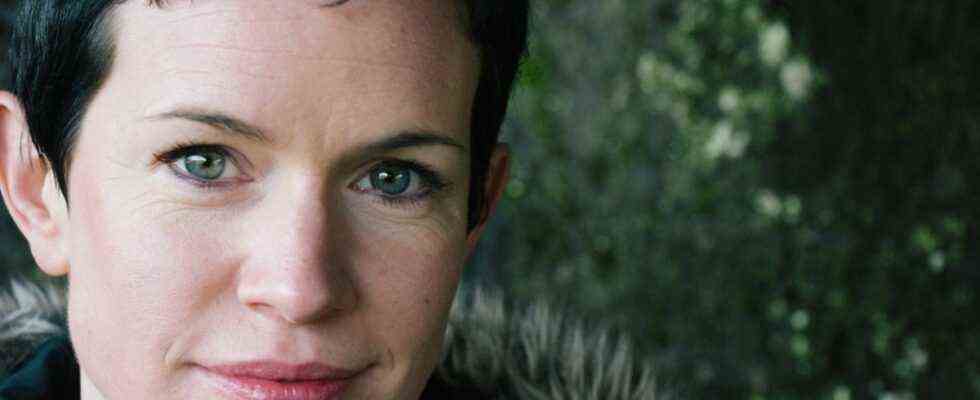“When they came to fetch me the second time, I lasted seven days in the dog hole …” The dog hole is a narrow iron box, the floor is stuck with shit, when the water is all you drink your own urine, the air is ice cold , winter is coming. The ultimate endurance test for the women of Carhullan – for those of them who are undergoing training to become warriors (“The Carhullan Army” is the original title of the novel by Sarah Hall). This will prepare them to withstand the torture should they be captured.
Carhullan is the name of a community in the mountains of Cumbria in the north of England, remote, self-sufficient, alternative, only women here. This is where the young narrator sets out when life in her hometown of Rith becomes unbearable for her. England is subject to a totalitarian regime after an ecological catastrophe, there is a strict ten-year plan for reconstruction, everything is regulated and rationalized by the “authorities” – food, work, sex, love. The women are given spirals, only those who win the lottery are allowed to have a child. The army is involved in wars in China and America, the media have disappeared, and with them the resistance. This is no longer England, say many who had to experience this development. The country has broken up into regions, the capital London has lost its importance. The old courtyards and cottages are falling into disrepair, wrecked cars are lying around as empty shells from a privileged era.
This is the female version of nihilistic Zen training from American war films
The young woman remains nameless at her own request, she is called “sister”, but she names the others with whom she will live, love and fight, Jackie, Megan, Lorry, Chloe, Shruti. On the day she arrives, Sister is put in the dog’s hole for the first time, a first test. For some, Carhullan is the mythical Shangri-La, the place of longing outside of time. For the others a witch’s nest, a place for deserters. There is agriculture, cattle breeding, peat cutting. There are common rooms, songs in the evening, same-sex love. Men are only marginally involved, a little love, a little procreation. It’s all a question of survival. Moisture and cold don’t go away anymore. Sister brought a gift, her father’s rifle from the world war.
“The Daughters of the North” is a women’s dystopia in the tradition of Doris Lessing or Margaret Atwood. Sarah Hall’s novel was published in England in 2007, before the “Me Too” debate. His disaster expectation comes from a time before Brexit, before the Trump presidency and long before the corona pandemic. The story is characterized by coolness and passion; it is about “Protocol No. 498”, the testimony of a prisoner, seven acts in total, after the suppression of an uprising. Sister is fascinated by Jackie Nixon, the leader of Carhullan, her charisma, which mixes demagogic, witch-like, erotic, paranoid moments. It creates the obligatory image of the enemy, the demagogic circular argument: All the signs indicate that the authorities will attack, so you have to strike first. As for the uprising itself, however, the files are incomplete. The insurgents lasted for fifty-three days.
Sarah Hall: The Daughters of the North. Novel. Translated from the English by Sophia Lindsey. Penguin, Munich 2021. 254 pages, 20 euros.
Sister knows she has become nothing, that going to Carhullan was a suicide mission. The community of women pulsates in it. One knows such a nihilistic Zen training from American war films, from Stanley Kubrick’s “Full Metal Jacket” https://www.sueddeutsche.de/kultur/. “Me Too” martial: “It didn’t make us monsters. It did simply given us the power to transform ourselves into the sacrosanct beings that the God of Equality intended us to be. We knew she was deconstructing the old, useless versions of our gender, and that was the only reason she was so ruthless Because these constructs were designed to last. It tore down the walls that held us prisoner. On the other side a fresh, red meadow appeared, and from the lush ground sprouted all the flowers of war that history has to pluck had refused. “
The narrative has a naive undertone, but it is broken and reflected in many ways. “The Daughters of the North” shows the pathology of a die-and-become logic, the psychogram of solitary rule, the dialectic of a revolution.

